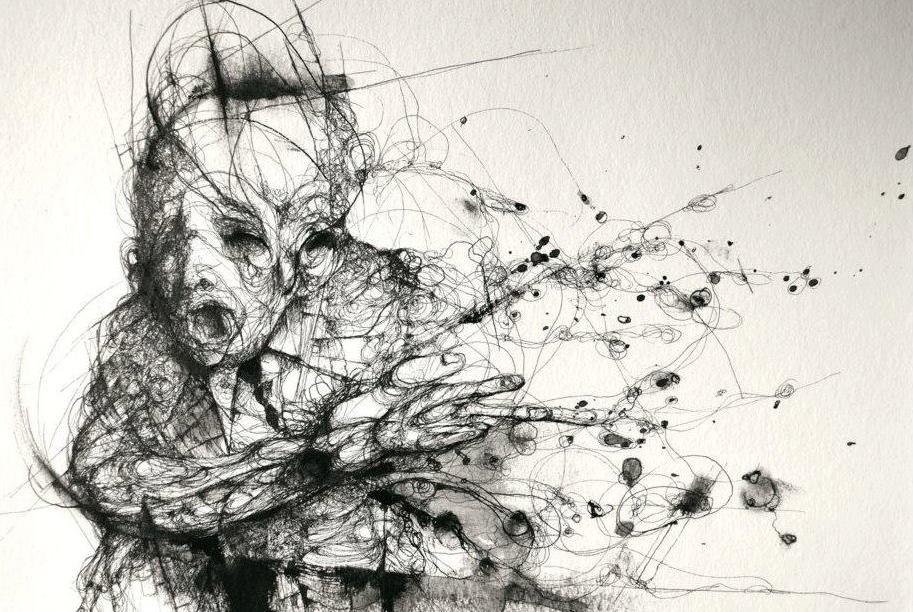My thoughts are with Elder Hamula and his family as they process his excommunication. This has brought back painful memories and I have cried over the news. Excommunication from the LDS Church is the most serious form of discipline.
As Elder Ballard described in A Chance to Start Over: Church Disciplinary Councils and the Restoration of Blessings, “Excommunicated persons are no longer members of the Church. Therefore, they are denied privileged of Church membership including wearing of the temple garments and the payment of tithes and offerings […] they are not entitled to offer public prayers or give talks. They may not hold a Church position, take the sacrament, vote in the sustaining of Church officers, hold a temple recommend, or exercise the priesthood.”
It still surprises me that the time a person needs community and the blessings of communal sacrament the most is when they are rejected and denied it. When a person is excommunicated, yet is still a believer, there are serious psychological consequences when a perceived eternal family member is removed from the family.
I know this, because I lived this. As I have mentioned before, my father was excommunicated on Easter Sunday when I was 14 years old. He was not fully reinstated into the Church until I was an adult and was already sealed to another priesthood holder, my husband. For an extended period our family did not have an ordained priesthood holder in our home; I had no brothers or close male family members that I could rely on for priesthood access. My mother, two sisters, and I learned to navigate LDS patriarchy without an ordained patriarch. There were many injuries along the way—stories that are not mine to share. However, I know what is feels like to be shunned, ignored, avoided, rejected, pitied, and patronized by my community for mistakes that had nothing to do with me.
I have written about my concerns of being a member of a patriarchal religious community here, here, here, here, here, here, here, here, here, here, here, here, and here. I have written about it at Feminist Mormon Housewives, Ordain Women, Rational Faiths, and The Transfigurist. I have discussed it at A Thoughtful Faith Podcast, and the Mormon Transhumanist Association Conference. I will keep voicing this concern until this issue gets resolved. People, often women, are still unnecessarily suffering at the hands of patriarchy, especially in regards to excommunication.
It has been over 20 years since my father’s excommunication, and our family is still healing from the trauma. For me, part of that healing processes is ordaining women to the priesthood. Women cannot receive the fullness of the gospel and full participation of the LDS community without it. There is no other way. We are taught to be self-reliant, but are denied the tools to do it. We are taught we have priesthood authority, but are denied ordination. We are taught to give our time, talents, and service, but we are denied our fullest, sincerest participation. We are taught to nurture, care for, teach our children, but we are denied full participation in their priesthood ordinances.

My mother could not baptize us, confirm us members of the Church, give us blessings of healing, stand as a witness at my temple sealing, or fully participate in priesthood rituals with her six grandchildren. There is no reason why she shouldn’t be able to have the communal priesthood authority to bless the lives of her children and grandchildren. There is no reason she should have to ask another man to come into our home to bless her three daughters when she was a worthy and capable woman.
This is not about shaming anyone, airing dirty laundry, or sharing intimate details about people’s personal lives, history, or mistakes. This is meant to illustrate there is real harm in the patriarchal governance of the LDS Church, especially in relation to excommunication. The same mistakes keep happening. Women are still hurting due to the faults of patriarchal priesthood holders. Women are still denied LDS autonomy and it won’t change until we confront these issues openly, honestly, and compassionately. Change happens when a person in the community is brave enough to raise their hand and say, “Something bad is happening to me and it’s not my fault. Please, let’s fix this.” Change doesn’t happen when the community responds by saying “Put your hand down. You’re being negative when you should have more gratitude. Your experiences and concerns aren’t worthy of consideration or can be patronizingly placated.” Change happens when people acknowledge that real people in their community are silently suffering due to inequitable policies and power imbalances. I do not think female ordination will solve all of our problems with regards to excommunication, but it’s a start.
As for Elder Hamula, the details of his or anyone else’s excommunication are none of our business (unless law enforcement is necessary). Being excommunicated from the LDS Church can bring a complete sense of loss and hopelessness. I’m not being melodramatic when I say the disillusionment of eternal family sealings can bring people to absolute meaninglessness and suicide. I hope the Hamula family will find healing and comfort with one another. My heart bleeds with them, especially his family members that will suffer from this through no fault of their own. Elder Hamula and his family have a long road ahead of them, and I offer my solidarity, love, and support.






